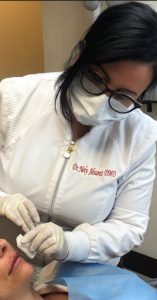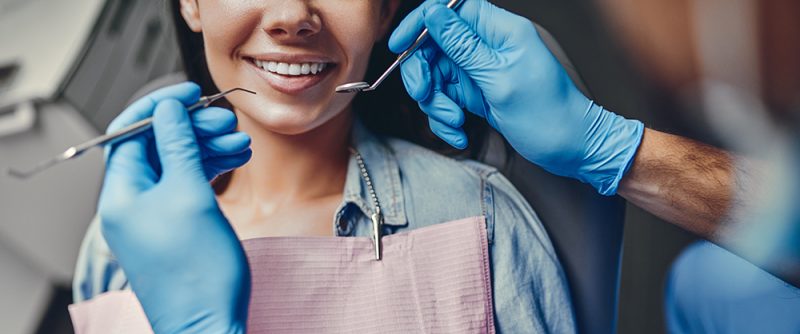South Florida dentist Nolyris Alvarez is cautiously optimistic. Her dental practice, Oral Facial Comprehensive Care, has begun a slow recovery from the COVID-19 crisis.
Payment arrangements are set with creditors. Patients are going to the dentist again. Many of her employees returned. But costs continue to increase, and monthly billings are down between 30 and 35 percent.
 “We can’t produce what we did before,” said Alvarez, who launched the practice in 1995 with her husband, also a dentist. “Everything is more expensive, and we can’t raise the price for our patients.”
“We can’t produce what we did before,” said Alvarez, who launched the practice in 1995 with her husband, also a dentist. “Everything is more expensive, and we can’t raise the price for our patients.”
CARES Act assistance was their only option to move forward.
Guided by consultants at Florida SBDC at FIU Business (FSBDC), the small business development center in FIU’s College of Business, Alvarez was approved for the Paycheck Protection Program (PPP), forgivable loans to cover payroll, and a Small Business Emergency Bridge Loan, which provides up to $50,000 in loans to small businesses impacted by the pandemic.
The loan approvals came at just the right time, Alvarez explained. “We were experiencing impossibility of performance, no income. Trying to stay afloat to secure emergency care for our patients and to be ready to start as soon as it was deemed possible.”
Together with the FSBDC, Alvarez developed a new business strategy. Today, Oral Facial Comprehensive Care’s financial focus is on cost-saving budget and financial stability.
“We’re now focused on finding ways to save without compromising our results,” Alvarez said. “We have tightened the yearly budget and reviewed systems for optimization of time and material.”
Alvarez explained that the bridge loan allowed her to cover expenses while they could only treat patients for emergencies. The PPP helped bring back 12 of the original 14 staff members and open the practice as soon as the governor allowed.
The center’s operations are markedly different than before the coronavirus. Appointments for dental cleanings are scheduled every 90 minutes to avoid multiple patients in at the same time and they’re seated at alternating chairs. All treatment rooms can’t be occupied simultaneously. Doctors and hygienists work in alternating shifts to streamline the population.
“We have to learn how to work with this,” said Alvarez, estimating that losses for the year will reach $1.7 million. “Everything is at reduced capacity.”
Alvarez describes the future of Oral Facial Comprehensive Care in one word: uncertain.

